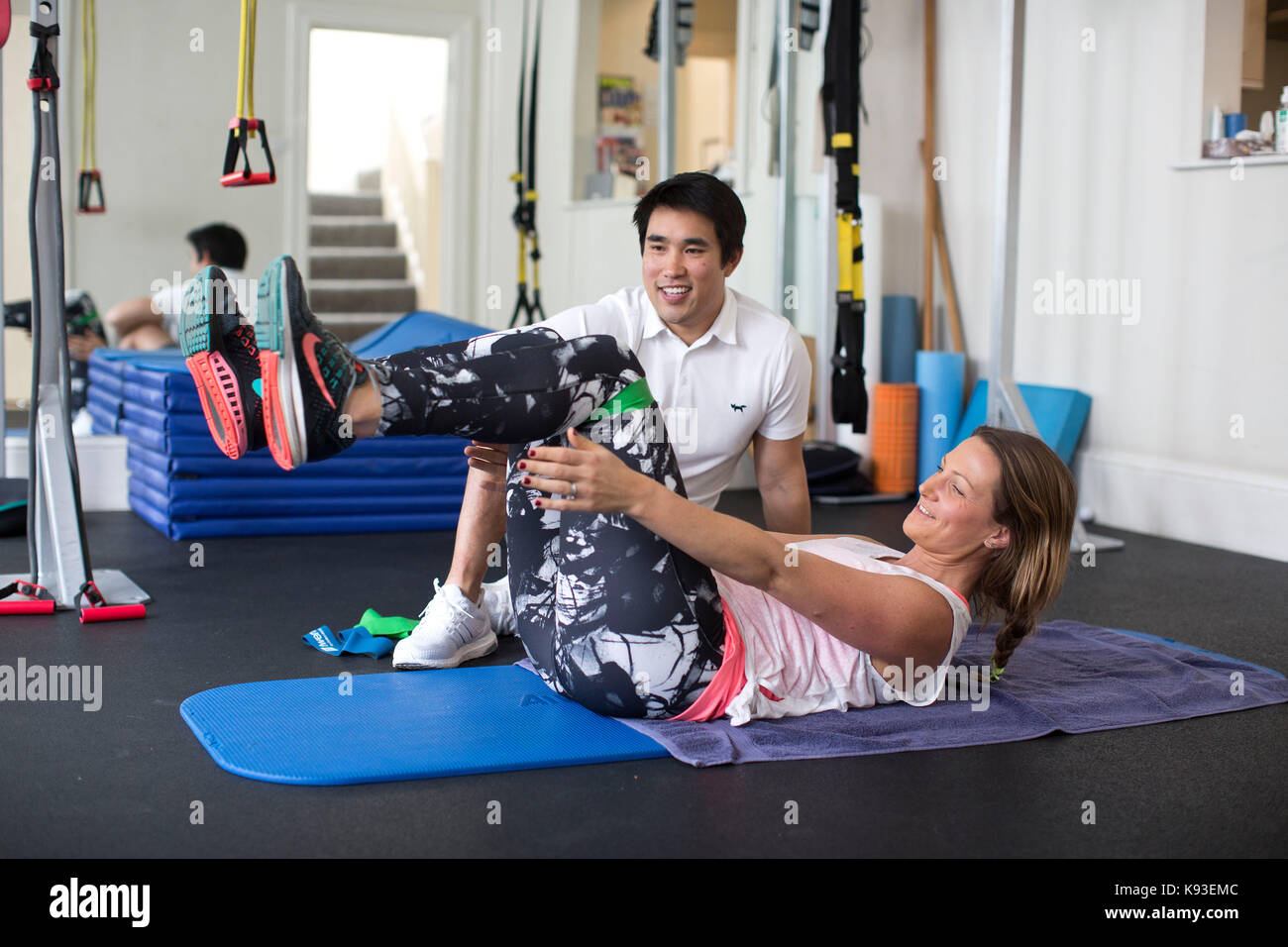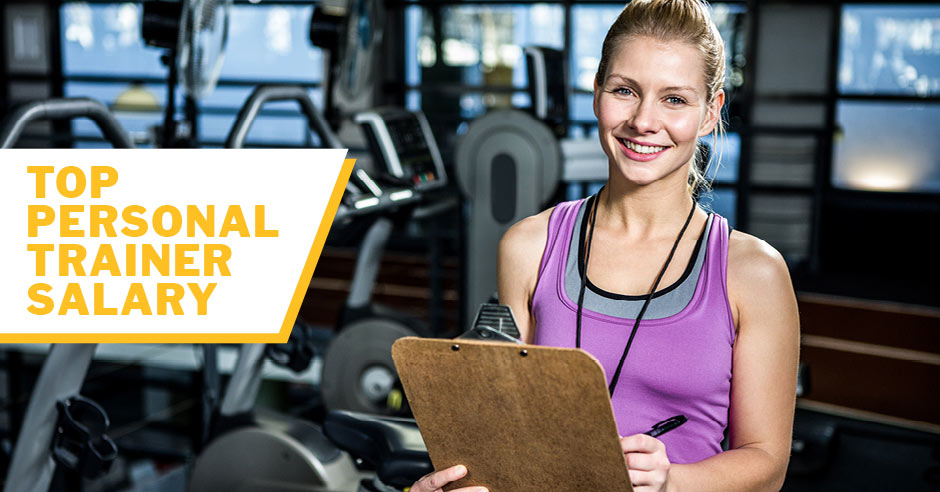
There are many factors you should consider when searching for a Georgia personal training salary. Among those factors are the expected growth, location and Certification requirements. Below you will see the expected salary and growth for this role. It is important to know that this job has an average salary and that it can vary from one place to another.
Average salary
In Georgia, salaries for Personal Trainers range from $18,319 to $101,573. The annual median salary is $51,879 These salaries would include an average state income tax rate of 6% and federal tax at 22%. A personal trainer in Atlanta, Georgia, could earn $42,310 annually, or $1763 per paycheck.
There are many factors that influence the salaries of a Personal Trainer, including experience, location, and sales commission. These figures do not give an accurate picture of what a Personal Coach can expect. They may work at gyms or fitness centers.

Certifications are required
Georgia personal trainers do not need to be certified by the state, but they must have completed some education. Many employers seek high school graduates and GED holders with at minimum some college education. Often they also need to have some type of certification, such as CPR and first aid. While not required, a post-secondary degree can provide an individual with valuable background knowledge and allow them to get started sooner. To get more knowledge and experience, individuals without certifications will need to train with an experienced personal instructor.
The University of Georgia Griffin Campus offers a certificate in personal training. The program is presented by the World Instructor Training Schools. The course includes a one-month internship and eight weeks in coursework. The coursework includes 62 credit hour of classroom instruction, practical learning, and a national certification examination. The coursework covers a wide range of subjects, including exercise physiology, biomechanics, and fitness testing.
Locations
Georgia is experiencing a rapid growth in the personal trainer industry. According to the labor division, there should be a 24.7 % increase in employment from 2008 to 2018. This would result in approximately 70 new jobs per year. Savannah is the top-ranked city for location. Sandy Springs, Alpharetta, and Sandy Springs are other top cities.
Georgia is a diverse and multicultural state. It isn't the most successful, but it has great healthcare options and business freedom. It is also the 26th fittest state in the country. Its cosmopolitan population provides good opportunities for personal trainers.

Expected growth
On average, a Georgia personal trainer earns 4.2% more than the national median. Those who have been in this industry for a while can expect to make 3.8% more. According to the Georgia labor department, the number of personal trainer jobs in the state is expected to grow by 24.7% between 2008 and 2018. A personal trainer in Georgia can earn around $38,000 an annual salary. The majority of Georgia's personal trainers have a bachelor's degree.
Georgia has an extremely high obesity rate. More than 65% Georgia adults are overweight or obese. Because of this, personal trainers in the state are responsible for helping people achieve good health through exercise and nutrition. This job involves working with a wide range of people, from children to seniors. Some people may need special exercises or have joint problems.
FAQ
Can exercise help me lose weight?
Yes. Regular exercise will help to reduce weight by burning more calories. Your metabolism will remain high, so you can continue to burn calories even though you're not exercising.
Do I gain weight from exercising?
Not at all. You can even maintain your weight by exercising. When you work out regularly, you'll build muscles and increase your metabolism, helping you burn more calories throughout the day. This means you won't store as much fat in your body.
Which Is more important? Exercise, diet, sleep?
The answer depends on what you want to achieve. It is important to lose weight. If you are looking to build muscle mass, however, exercise is the best option. The last factor is sleep, which only impacts how well you perform during your day.
Can I exercise after eating?
It depends on what type of exercise you're performing. Avoid strenuous exercise after meals as it can cause stomach cramps. Instead, focus on light aerobic activities like brisk walking or biking.
Is it safe for me to exercise in cold temperatures?
If possible, go outside. While the air temperature is a major factor in determining whether or not it's safe to exercise outside, it's not the only one. Wind speed, humidity, precipitation, and visibility also play a role. If you exercise outdoors in inclement weather, wear layers of clothing that protect you from wind chill and rain.
Statistics
- One study showed that adults who watch more than 4 hours of television daily had an 80% higher risk of death from cardiovascular disease. (heart.org)
- Globally, 28% of adults aged 18 and over were not active enough in 2016 (men 23% and women 32%). (who.int)
- An estimated 110,000 deaths per year could be prevented (cdc.gov)
- Globally, 81% of adolescents aged 11-17 years were insufficiently physically active in 2016. (who.int)
External Links
How To
How to Stay Fit at 40
This article provides guidance for people who want to keep their bodies strong and healthy, even after turning 40. This article provides basic information on how to eat well, exercise, sleep well, and take care your mental health. This article provides tips to help you live longer and be healthier.
-
Eat right - It is important to eat the right food when you are trying to lose weight. You should avoid processed food products. Instead, eat whole foods, fruits, vegetables. Add something to your diet if it isn't what you like. Do not starve yourself, this will not help with weight loss. Instead, start adding small amounts of new things into your daily meals. Try turkey once a week if you usually only eat chicken breast. Rice is another option if you enjoy pasta. These foods should be a part of your daily life.
-
Exercise - When exercising, make sure you work out at least three times a week. Include cardio activities such walking, running swimming biking, cycling, and dancing. You should also ensure you get enough sleep. It is recommended that you get at least 8 hours sleep per night. Make sure to drink lots of water throughout your day. You should aim to consume 2 liters (0.5 Gallons) of water per day.
-
Sleep well - A good night's sleep is key to staying healthy. The National Sleep Foundation states that adults need 7-8 hours sleep per night to be in good physical and mental health. The majority of people sleep less than 6 hrs a night. Try making changes to your sleeping schedule if you feel constantly tired. You can catch more sleep by changing your sleeping schedule so that you go to bed earlier or wake up later. Turn off your phone prior to going to bed to help you wind down and relax. Avoid caffeine after noon as it can cause insomnia.
-
Take care of your mental well-being - It's important to take good care your mind and keep your body in tip top shape. Stressful situations can lead to poor eating habits and unhealthy lifestyle choices. You should practice stress management techniques, such as yoga, meditation, breathing exercises, or relaxation. Spend one hour doing something you enjoy. You can do this by going for a walk or reading, playing sports, listening to music, or watching TV.
These four tips will help you live longer, and be healthier. These four steps can help you achieve your fitness and health goals.